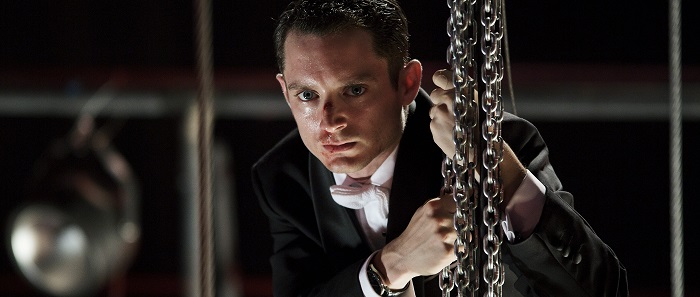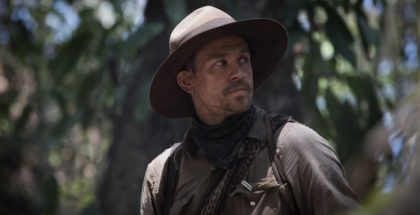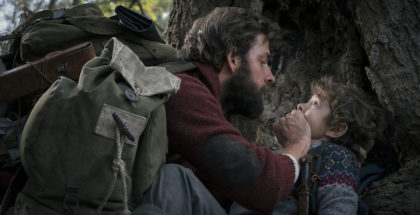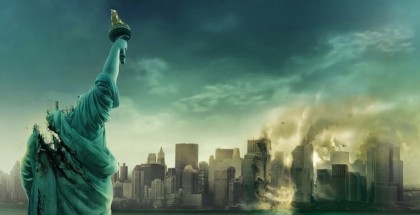VOD film review: Grand Piano
Review Overview
Stupidity
7Tension
8Music
9David Farnor | On 19, Sep 2014
Director: Eugenio Mira
Cast: Elijah Wood, John Cusack
Certificate: 15
Speed but with a piano instead of a bus. When you put it like that, you wonder why no one’s made Grand Piano before. Sort of. But Eugenio Mira has picked up the barmy baton before anyone else could, creating a thriller that takes its idea and runs with it all the way up the scale.
Tom Selznick (Wood) is a guy who could be the greatest pianist of our time – if only he didn’t choke. After five years of retirement (following one disastrous gig), he decides to perform a comeback concert in memory of his recently deceased mentor. But just as he sits down on the stool, he finds a message in his manuscript: put one finger wrong and he dies.
If it’s ridiculous, Elijah Wood never lets on: he’s perfectly tuned as the frantic genius, sweating, stammering and sprinting off stage every time he has a few bars’ rest to communicate with the man in a box pointing a sniper at his chest. On the other end of the earpiece, John Cusack’s vocals add a menacing key to the straight-faced nonsense.
The director sets the tempo quickly from the off, chucking his camera around the stage to keep things dynamic. It works: weaving in and out of the hammers and strings before soaring over the audience, Mira’s visuals turn the minor scale location into a major source of tension. With nowhere to go and nobody to talk to, Frank is left dialling his phone with one hand while trilling with the other. All the while, the orchestra plays on.
“You’re going to make a wrong note,” his conductor and friend tells Tom before the proverbial curtain raise. “The audience won’t notice. They never do.”
That’s the key to the movie’s success, taking that basic premise and ramping it up to ridiculous extremes; a literal, musical take on Hitchcock’s Stage Fright. Alfie, you suspect, would be sitting eagerly in the front row.
Indeed, the music is the real star. Damien “Whiplash” Chazelle’s script writes it directly into the plot, the background score used as a foregrounded MacGuffin: the sniper’s instruction? Play the “unplayable” La Cinquette, written by Tom’s mentor with his protege’s nimble fingers in mind. Composer Victor Reyes (who gave Buried its similarly claustrophobic pulse) rises to the challenge, creating a fiendish sonata that blends Tchaikovsky and Bernard Herrmann with dizzying complexity. Every time we hear another jarring chord, what would normally be accompaniment plucks at your nerves; was that the wrong note Tom’s been dreading? One playful nod to Un Chien Andalou sees someone’s throat about to be slit, before cutting away to a bow moving across a cello.
So far, so artfully trashy. The problem with such thrillers, though, is the final movement, when the themes have to resolve without making the audience tear up the manuscript altogether. Where many might chicken out, though, Chazelle’s screenplay doesn’t slow down or change location for his climax; he stays on the stage, puts his foot on the pedal and accelerandos to the last few bars. That sheer commitment to the silly concept is to be applauded – after all, even Speed jumped from a bus to a train. What will happen when Wood hits those crucial beats? The answer, like the rest of it, is absurdly simple and keeps the film’s focus firmly on the keyboard. But it’s the rest of the composition that makes this piece so crazily special. Grand Piano’s 90-minute symphony is so tightly strung that you get completely caught up in the B-movie nonsense. If the movie does make a wrong note – or even if it’s full of them – you don’t notice.




















